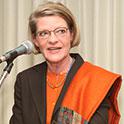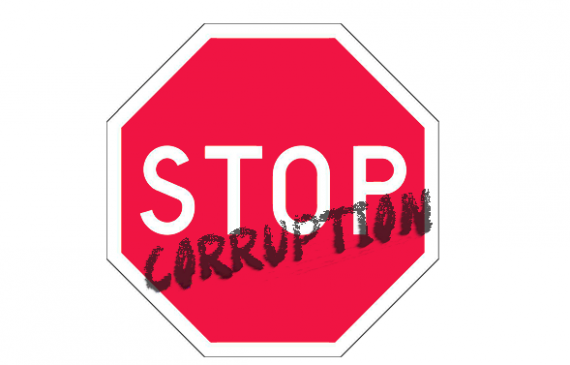Corruption is an issue that people all around the world care about—more than 5 million voters in the United Nations Development Programme’s (UNDP) global My World survey ranked “honest and responsive governments” among their top four priorities for development in the post-2015 period.
UNDP works on anticorruption in more than 100 countries, including under its Global Anti-Corruption Initiative (GAIN). Anne Marie Sloth Carlsen is UNDP’s Seoul Policy Centre’s Director and spoke to Daily Development on corruption’s impact on development.
DD: How serious is the problem of corruption globally?
AMSC: Corruption by its very nature is difficult to measure. If we knew better how to measure it, there would be less of it—transparency is corruption’s biggest enemy. In economic terms, there are estimates. Globally, almost US$ 1 trillion is paid in bribes each year—an estimated US$ 148 billion is lost to corruption in Africa alone. It is clear that there is a lot of money that could be put to far better use.
Some years ago, UNDP’s Oslo Governance Centre published guidelines for measuring corruption. These give valuable insight into how difficult it is to measure it, but also provide tools that enable measurements in specific contexts and communities. Information derived from such measurements can be a powerful way of advocating for strengthening anticorruption measures.
What makes measuring difficult is that there are many forms of corruption, from bribery and gift giving to patronage, and traditions and cultural habits vary from country to country. There is petty corruption, which affects the poorest more directly because they have to pay to get services, there is grand corruption or private sector corruption, which is when private companies bribe public officials or politicians to obtain information, permits and licences, and lately there also seems to be more focus on what could be called political corruption.
DD: Is corruption on the increase?
AMSC: No one can say for sure, but I believe the answer could be yes, if we think of how wealth, money streams, investments and trade have increased globally, along with the pressure from our consumption and production patterns on the resources and physical space of our finite planet. This underlines the timeliness of including a focus on corruption in the sustainable development goals. The proposed target is there, but the big challenge is to identify the right indicators to actually measure the progress in fighting corruption.
DD: What are corruption’s effects on ensuring sustainable development, eradicating poverty and promoting economic growth?
AMSC: There are many effects of corruption, and unfortunately they are all bad news. Corruption deprives people of their right to non-discrimination and equal opportunities for development and well-being, and thereby impedes development and promotes inequality and injustice. It undermines trust and social capital and puts the very development process at risk. Corruption undermines fundamental human rights, exacerbates poverty and degrades the environment. It diverts money sorely needed by our societies for health care, education and other essential services. It increases the costs of doing business, distorts markets and impedes economic growth. The list could go on. And though some claim that corruption fosters economic growth by greasing the wheel and cutting red tape, the economic benefit is short lived.
DD: What specific actions are needed to tackle corruption in the post-2015 period?
AMSC: Efforts to have all United Nations Member States ratify the Convention against Corruption and to ensure implementation will have to be intensified. The review mechanism of the Convention is very important in this context. Each state party is reviewed by two peers after having done a self-assessment. I also believe that efforts need to go beyond the national level. Big bribes do not stay in domestic bank accounts. They pass through foreign bank accounts; they are whitewashed through investments and hidden in tax havens. More resources and efforts will need to be invested in economic crime squads who “follow the money” and in increasing transparency in the banking sector. Progress is being made here thanks to the Organisation for Economic Co-operation and Development and the Group of 20, but if we want to rid the world of these distorting malpractices, I believe the grip has to be tightened further.
DD: What can individuals do to tackle corruption in their own communities, cities and countries?
AMSC: Talk to your children about what’s right and wrong. Children have a very strong sense of justice and fairness. As parents, we have an obligation to ensure that our children take this into adulthood. Show them how to act as a community, for example buy a present from all the parents to the teacher, not individual presents that could give ideas of special treatment. Lately, we have heard many stories about how parents in different places try to give their child an advantage in the education system. Corrupt practices can find their way into any sphere of society. We all need to exercise a greater awareness of corruption risks, insist on transparency and disclosure and vote for politicians who take a clear stand on ethics and integrity.
DD: How crucial is fighting corruption and bribery to the overall post-2015 agenda?
AMSC: The reason that corruption needs to be a part of the sustainable development framework is very clear—corruption is counter-productive to achieving any of the goals because it distorts the decision-making process and the implementation of agreed policies and the measures that will be required to achieve them. The overall objective of the new development framework is poverty eradication and sustainable development. This is a very transformative agenda that cannot be achieved without trust.
Contributor

Anne Marie Sloth Carlsen took up her post as Director of the United Nations Development Programme’s (UNDP) Seoul Policy Centre for Global Development Partnerships in January 2014. Previously, she served for five years as Senior Policy Adviser in UNDP’s Bureau for Development Policy in the Environment and Energy Group in New York. Prior to joining UNDP, Anne Marie served as a diplomat of her native country, Denmark, for more than 20 years.


Post a comment